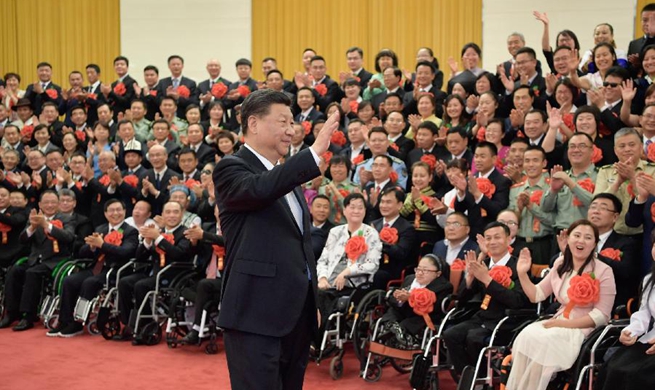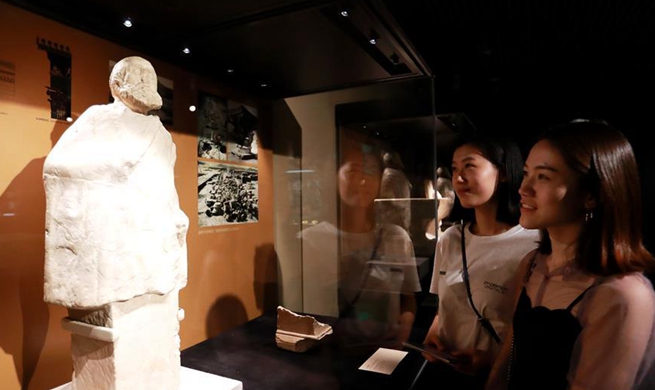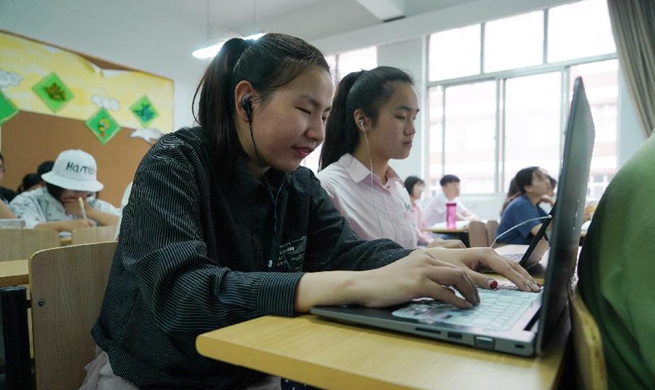HOHHOT, May 18 (Xinhua) -- It finally dawned on Zhang Liwen (pseudonym) and her husband that separation was not a solution after they impulsively got divorced four times in two years due to endless quarrels, such as who should cook or wash the dishes.
When filing for their last divorce, they accepted mediation services offered by volunteers from Hongshan District in the city of Chifeng, northern China's Inner Mongolia Autonomous Region. The couple decided to utilize the services and signed up for the "Happiness Class" which teaches troubled couples how to manage their marriages.
Chinese people have traditionally set great store on family and marriage. However, the country's divorce rate has been on the rise in recent years. China's Ministry of Civil Affairs revealed that more than 3.8 million couples registered for divorce last year, with the divorce rate rising for 15 consecutive years.
To stem the rising tide of divorce, a divorce mediation room was established in the civil affairs bureau of Hongshan District in 2016 by volunteers led by Wang Chunmei, a member of the marriage and family committee under Chifeng's psychological association.
"At a time when freedom of marriage and divorce are being advocated, impulsive and hasty marriages and divorces are on the rise. We are offering free guidance and psychological counseling for the couples careening into divorce without careful forethought," Wang said.
Meanwhile, Wang has set up a "Happiness Class" consisting of 10 courses for the single and married, as well as for those on the verge of separation.
Zhang and her husband fell in love at first sight at a party and were married two years ago. "We were always in bitter quarrels or cold wars due to trivial things. I love him and he loves me, but I didn't understand why our marriage was always in crisis," Zhang said.
Reserved and uncommunicative, Zhang's husband Wang Peng (pseudonym) believes that his wife makes trouble out of nothing when they are at odds. "The mediators gave us skills and specific advice on how to treat our relationship. I realized that couples hit some bumps in their marriage, but impulsive divorce would be a mistake," Wang said.
The mediation room now has 34 mediators formed by lawyers, psychologists and other volunteers. Over the past three years, some 400 couples eager to get divorced postponed their decisions after utilizing the resources in the district, according to Zhou Guiqing, vice-chairman of the Women's Federation in Chifeng.
Other places in China have also used various measures to reduce the number of impulsive divorces. Last year, the People's Court of Yuzhong District, Chongqing Municipality, set up a mediation center for family disputes. It required couples who sued for divorce to finish a questionnaire on their relationship, based on which the mediators could help them calm down and think over their decision.
In October 2017, a district court in eastern China's Shandong Province introduced rules that ask couples to undergo a compulsory three-month "cooling off" period before being allowed to divorce. The move caused an outcry online as many people see it as undue overreach by the court.
"Many couples don't know how to express love. The mediators can help them understand the true meaning of marriage, teach them how to manage marriage and provide targeted solutions to problems that may arise or have arisen in their marriage," Wang said.
But she also pointed out that marriage is, after all, deeply personal. "To divorce or not, the choice finally lies with the couple themselves."

















